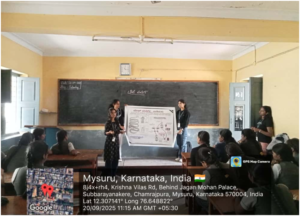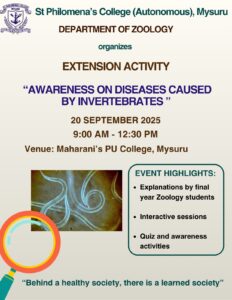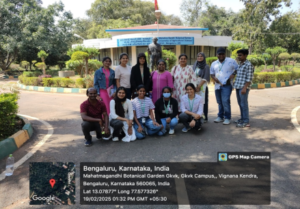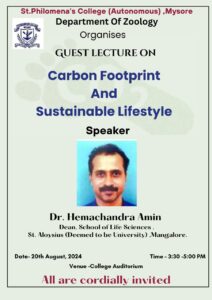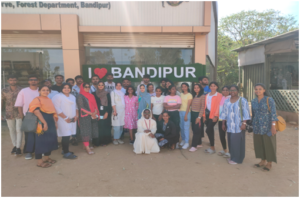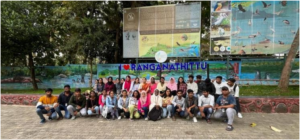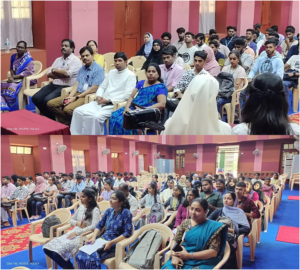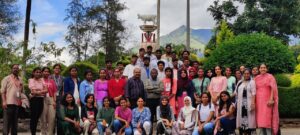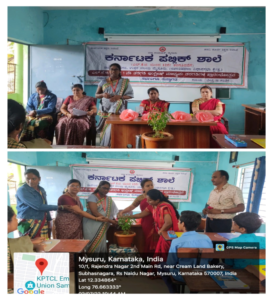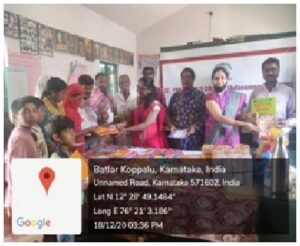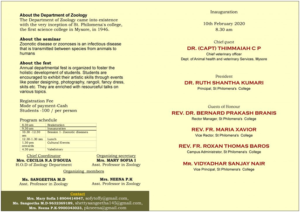DEPARTMENT OF ZOOLOGY
Vision:
To achieve excellence in higher education, research, and innovation in the field of Zoology, while remaining sensitive and responsive to the evolving needs of society.
Mission
- To create, innovate, and disseminate knowledge in Zoological sciences.
- To provide state-of-the-art infrastructure and a conducive learning environment for students and faculty to nurture globally competent professionals.
- To promote the conservation of faunal diversity through sustainable approaches.
- To instil values of morality, ethics, and humanity among young minds.
Departmental Activities
2020–2021
- 25 August 2020: Organized a National-level Webinar on “Implications of Biological Rhythms on the Neuroscience of Learning.”
- 18 December 2020: Donated books and study materials to Government Higher Primary School, Hebbalu Extension, K.R. Nagar Taluk, Mysuru, as part of an Extension Activity.
2021–2022
- June 2021: Produced a video on the theme “Ecosystem Restoration” to observe World Environment Day, effectively creating awareness during the pandemic lockdown.
- 6 June 2022: Organized a walkathon and plantation drive to commemorate World Environment Day under the theme “Only One Earth – Let’s Live in Harmony with Nature.”
- 11 March 2022: Conducted a Webinar on “Human Chromosomal Syndromes and Their Diagnosis” to raise awareness of hereditary diseases.
- 2 August 2022: Visited Karnataka Public School to create awareness on Worm Infestation as part of an Extension Activity.
- 22 May 2022: Held various competitions to celebrate the International Day for Biological Diversity.
- 17 November 2022: Organized an educational visit to Vijnana Bhavana, the Central Instrumentation Facility at the University of Mysore, offering experiential learning in research methodologies.
- 13 December 2022: Hosted a seminar on “Lifestyle Disorders and Post-COVID Management.”
2023–2024
- 7 June 2023: Organized a seminar on “Oral Health for Healthy Living” to enhance awareness of dental hygiene and overall wellness.
- 8–9 June 2023: Collaboratively with the Department of Botany, conducted an educational trip to Kerala Veterinary and Animal Sciences University (Pookode) and the Regional Agricultural Research Station (Ambalavayal, Wayanad) to promote experiential learning.
PRESENT FACULTIES
Department Videos:


